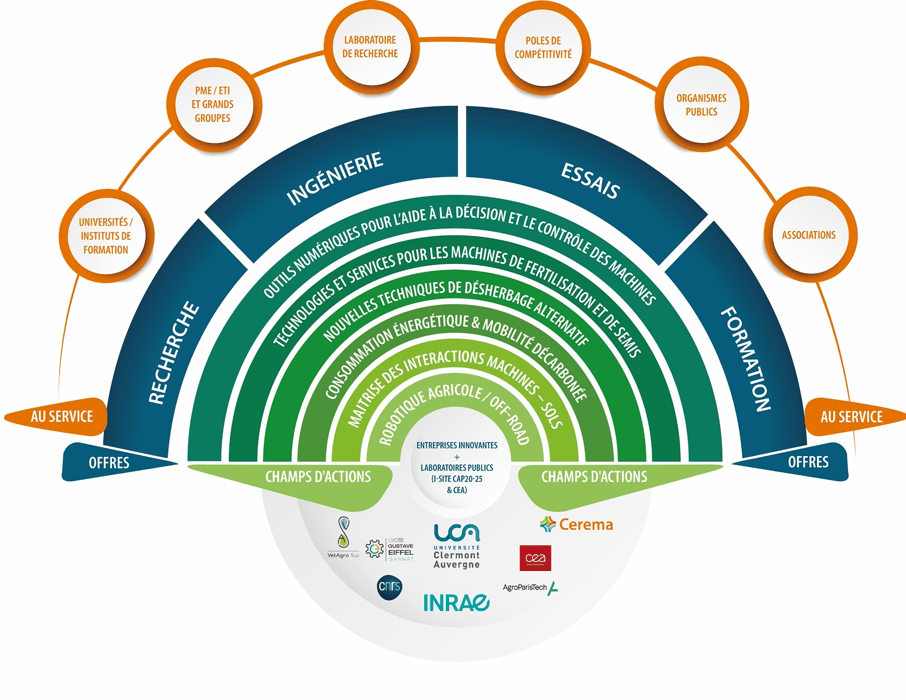What is the AgroTechnoPôle?
The agro-ecological transition is now a clear priority for the public authorities, and one shared by more and moresocio-economic players in which agricultural equipment plays a key role for the adoption of new agricultural practices (e.g. reduction in the use of phytosanitary products, crop diversification, low-carbon energy consumption and mobility, etc.) aiming for triple performance economic, environmental and social.
The AgroTechnoPôle platform, launched in early 2022 and supported by INRAE, is firmly positioned to help meet this challenge and accelerate the development of new technological solutions to meet the challenges of tomorrow’s agriculture.


It enables us to accelerate FIELDS OF ACTION both incremental innovations (improvements to existing machines) and breakthrough innovations (new machines, processes) to meet the challenges facing agriculture.
Its action is to be able to remove the scientific and technological obstacles which will be posed to him by these various actors, to bring solutions to them thanks to the capacity to mobilize the plural and complementary competences in terms of SEARCH / ENGINEERING / TESTS / TRAINING with its Academic Partners (CEA, CEREMA, UCA, VetAgro Sup, LP Gustave Eiffel, INRAE) and/or its NETWORK of specialized Innovative Companies (Mechatronics / Robotics, Terramécanique, AI, IoT, Modeling / Simulation, …).
AgroTechnoPôle is an open innovation platform AT THE SERVICE of all players involved in agriculture (manufacturers, equipment suppliers, technical institutes, technology clusters, research laboratories, etc.) to support them in their development of technological and digital solutions for the Agroecological Transition.
The companies BUREL PRODUCTION, Groupe KUHN, MICHELIN and SHERPA-Engineering have decided to support the AgroTechnoPôle platform from its inception (January 2022). They are the first Leading Company Members, making significant contributions (technical and financial) to the development of research and test benches of particular interest to them, which they will then use for their own R&D activities.